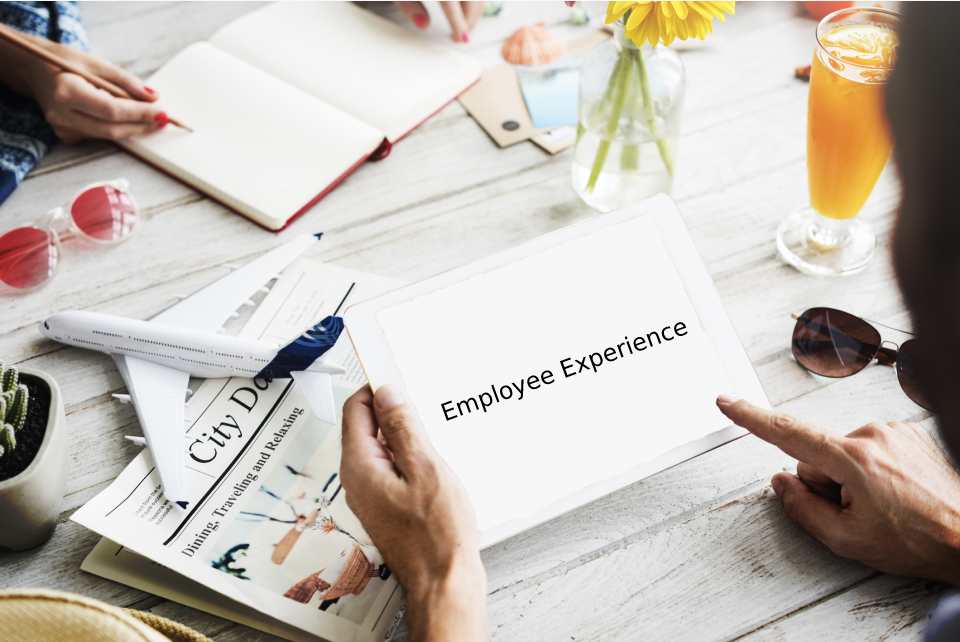Five Tips For A Better Employee Experience

Many companies spare no expense to offer their customers the perfect (shopping) experience. At Starbucks, you get a pleasant ambiance, free WiFi, and excellently trained staff along with your coffee. In an Apple store, you don’t just buy a product. You come to a store full of “geniuses” who help customers set up, repair, or product problems and give them the feeling of belonging to a global community of like-minded people.
Far less effort is made for an improved employee experience than the experience of your employees. This is a missed opportunity since good employees are hard to find and even more challenging to keep. Also on factors such as productivity,
Often the responsibility for the employee experience is passed on to the HR department. It goes far beyond their area of responsibility: It not only includes on- and offboarding, but also performance reviews, training, requesting IT support, the retrievability of data and knowledge, and the management of payrolls.
The IT department is often involved, but the facilities or bookkeeping also have to be included in many of these processes. The cross-departmental integration of functions, such as through a self-service portal, offers particularly great potential, as this enables employees to be offered a seamless user experience. But what is the best way to do this?
Table of Contents
Tip 1: Create Employee Personas
There isn’t one experience that suits everyone. Therefore, you should look at employees in the same way as customers – in different segments. A 50-year-old accountant has another way of thinking and approaching a 28-year-old graphic designer. Create personas to determine, based on different roles and experiences, how individuals would interact with the company’s internal services.
In this context, a “persona” is a fictitious description of an ideal employee for a specific role, and it provides information on how best to interact with him. To build meaningful personas, you have to identify your different types of employees and create profiles, enabling you to anticipate your employees’ needs better.
Tip 2: Map The Employee Journey
Going on a vacation trip means researching your destination, booking it, getting to the airport, going through security, flying, renting a car, and finally arriving at your destination. You can have positive, negative, or neutral experiences with each of these points. Employees also go on a similar journey, for example, when it comes to onboarding.
A welcome meeting, setting up the company laptop, access to data and knowledge, whether from the office or the home office – these and other steps are necessary so that a new employee can start work. The series of interactions between companies and employees, which in the best-case scenario are carried out in a comprehensive portal, represent the employee journey and directly affect engagement, attitude, and productivity. Therefore, you should identify every single interaction and think about how it can be adapted to the individual needs of the employees.
Tip 3: Keep An Eye On The KPIs
To continuously improve employee experience, you need to measure it. Conventional IT indicators, such as total costs per contact or fulfillment time, are not suitable for precisely recording the successes and challenges of your service portal, with which the employees primarily interact.
Instead, you can use Google Analytics to track users, sessions, usage rates and times, and employees’ devices to access the portal. The knowledge gained in this way says much more about how your employees interact with the portal and what adjustments you can make.
Tip 4: Tear Down Silos
Enterprise Service Management (ESM) applications are the method of choice to offer your employees the previous cross-departmental experience. ESM makes it possible to work across silos: HR, facilities, customer service, finance, training – all these departments should be integrated on one platform, if possible. Because if you give customers a seamless experience to get whatever they’re looking for, you should offer the same service to their employees.
Tip 5: Enable Self-Help
Employees are happy to solve problems themselves – whether it is about IT support or submitting a vacation request – and attach great importance to fast and transparent assistance. This is the result of a study recently commissioned by Cherwell [see below]. The best way to implement this problem-solving is with a self-service portal. This means that employees can independently access the knowledge they need or go through specific processes. This improves the employee experience and gives HR and IT managers the freedom to concentrate on more demanding and creative tasks.
Also Read: Five Tips On How Companies Can Increase Their Resilience






